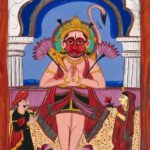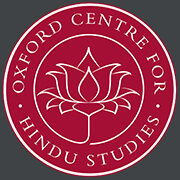Asceticism, Sādhus, and Yoga
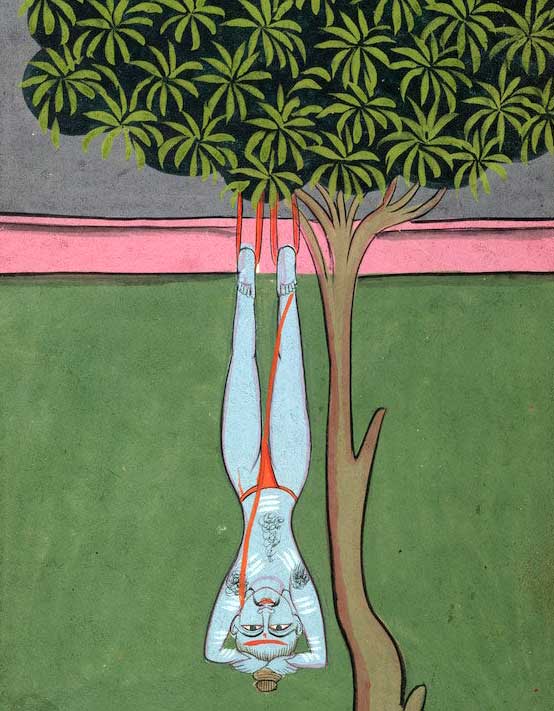
This course provides an overview of the history and development of asceticism in India. It then focuses on contemporary ‘traditional’ sampradāyas (religious orders) and the practice of tapasyā (austerity) and yoga among sādhus.
Using a multidisciplinary approach we analyse textual, visual, and ethnographic sources enabling you to easily engage with otherwise complex and diverse topics related to asceticism and yoga.
On this course you will learn:
- To understand the complexity of Hindu asceticism and its organisations.
- To recognise some of the most important ascetic sampradāyas (religious orders), their features and histories.
- To recognise the continuity as well as the development of yogic practices over the centuries.
- To understand contemporary ascetics’ perspectives of ‘embodied practices’ such as tapas, Haṭha-yoga, and yoga sādhanā.
Start Date: 12 October 2025
Late enrolments still open for a limited time
Course Duration: Seven Weeks
168 pages
Pathway(s): Hindu Culture, Hindu Traditions, History of Hinduism, Yoga Studies
On-Demand Video
The main video component of your course. On-demand means you can watch at the time that suits you.
5hr 28min
Community Discussions
These free Zoom sessions are not part of your main course materials. They are led by OCHS-affiliated scholars and open to students enrolled in any course.
Explore other areas of Hindu studies! Meet tutors and students from other courses!
Monday, 20 October, 4pm
Tuesday, 28 October, 3pm
Wednesday, 5 November, 3pm
Thursday, 13 November, 5pm
Sunday, 23 November, 6pm
These are all UK times. Recordings are available for any sessions you miss
Session One: The Evolution of Hindu Asceticism
In this first session we explore the supposed sources of asceticism and the practices involved. Then we will focus our attention on theistic movements introducing the tantric and the devotional currents. We aim to understand their main features in their historical context and to understand the plurality of their ascetic practices.
A person with nothing sleeps, and awakes, in happiness. Not possessing anything is the medication for happiness in the world. […] this path is extremely difficult for those who have no enemies. […] Without renunciation, one cannot enjoy supreme happiness. Without renunciation, one can neither sleep, nor be happy in every way. (Mahābhārata 12.171)
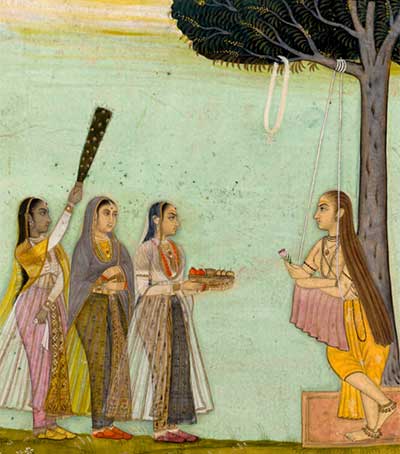
Session Two: Ascetic Orders Today
We begin this session with a look at the basic structure of Hindu asceticism. We then focus on the historical development, contemporary status, and features of ascetic orders traditionally associated with the practice of yoga – Nāths, Daśnāmīs, Rāmānandīs, and Udāsīs. Ascetic symbology will be explained, and the figure of the ascetic will be compared to that of the lay individual.
Session Three: Links between Tapas and Yoga
In this session we begin a historical perspective of the embodied practices of asceticism. We focus on the meaning of the word tapas (‘spiritual’ heat) and the role of austerities. We will consider textual and visual sources from different historical periods, also stressing the connection between yoga and tapas and how the meanings of these two terms often overlap.
Session Four: Tapasyās Today
In this session, we compare the past examples of tapasyās with the tapasyās of contemporary sādhus, also taking into account the reasons behind the practice of austerities. The ethnographic data will demonstrate that several understandings of tapasyā coexist.
Session Five: Haṭha-yoga and Sādhus
In this session we gain a wide-ranging perspective of Haṭha-yoga. We consider definitions found in Sanskrit and vernacular textual sources. These descriptions and understandings will be compared with the meanings that the label ‘Haṭha-yoga’ has for sādhus.
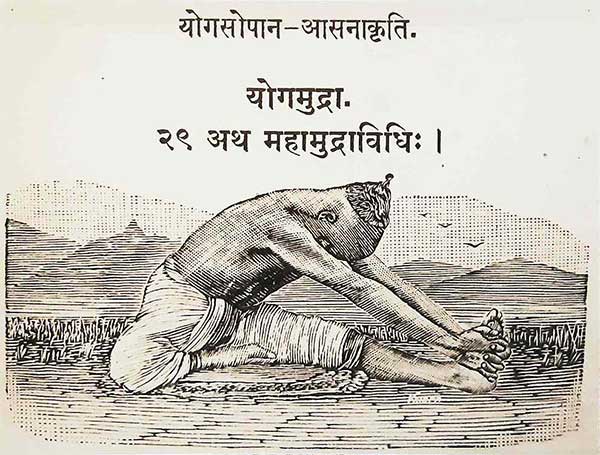
Session Six: Ascetic Yoga Practices
In this session we explore yoga sādhanā (spiritual discipline) – dividing it into external and internal practices. We uncover the meaning of yoga among ascetics by investigating how sādhus learn their practices and how they understand yoga texts.
Session Seven: Sādhus and Modern Yoga
We conclude with sādhus’ reflections on modern yoga and how, or if, this has influenced them. Then, we consider the roles of social media and the Internet, and present the controversial figure of Baba Ramdev and the establishment of the International Day of Yoga.
Associated Courses
Your Tutor

Daniela Bevilacqua
Daniela Bevilacqua is an Indianist specialising in Hindu asceticism, investigated through an ethnographic and historical perspective. She is currently a researcher at CRIA (ISCTE-IUL) in Lisbon. She worked as a post-doctoral researcher at SOAS, for the ERC-funded Haṭha Yoga Project (2015–2020). She is the author of Modern Hindu Traditionalism in Contemporary India, published by Routledge; From Tapas to Modern Yoga forthcoming in 2024 published by Equinox,; and several articles and book chapters on topics related to Hindu religious tradition, gender, and embodied practices.
